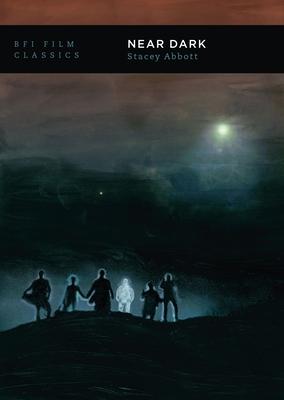First released in 1987, Near Dark is a vampire film set in the contemporary American Midwest that tells the story of Caleb, a half-vampire trying to decide whether to embrace his vampire nature or return to his human family. The film, an early work of the now-established director Kathryn Bigelow, skilfully mixes genre conventions, combining gothic tropes with those of the Western, road movie and film noir, while also introducing elements of the outlaw romance genre.
Stacey Abbott's study of the film addresses it as a genre hybrid that also challenges conventions of the vampire film. The vampires are morally ambiguous and undermine the class structures that have historically defined stories of the undead. These are not aristocrats but instead they capture the allure and horror of the disenfranchised and the underclass. As Abbott describes, Near Dark was crucial in consolidating Bigelow's standing as a director of significance at an early point in her career, not simply because of her visual art background, but because of the way in which she would from Near Dark onward re-envision other traditionally mainstream genres of filmmaking.
First released in 1987, Near Dark is a vampire film set in the contemporary American Midwest that tells the story of Caleb, a half-vampire trying to decide whether to embrace his vampire nature or return to his human family. The film, an early work of the now-established director Kathryn Bigelow, skilfully mixes genre conventions, combining gothic tropes with those of the Western, road movie and film noir, while also introducing elements of the outlaw romance genre.
Stacey Abbott's study of the film addresses it as a genre hybrid that also challenges conventions of the vampire film. The vampires are morally ambiguous and undermine the class structures that have historically defined stories of the undead. These are not aristocrats but instead they capture the allure and horror of the disenfranchised and the underclass. As Abbott describes, Near Dark was crucial in consolidating Bigelow's standing as a director of significance at an early point in her career, not simply because of her visual art background, but because of the way in which she would from Near Dark onward re-envision other traditionally mainstream genres of filmmaking.Paperback
$15.95